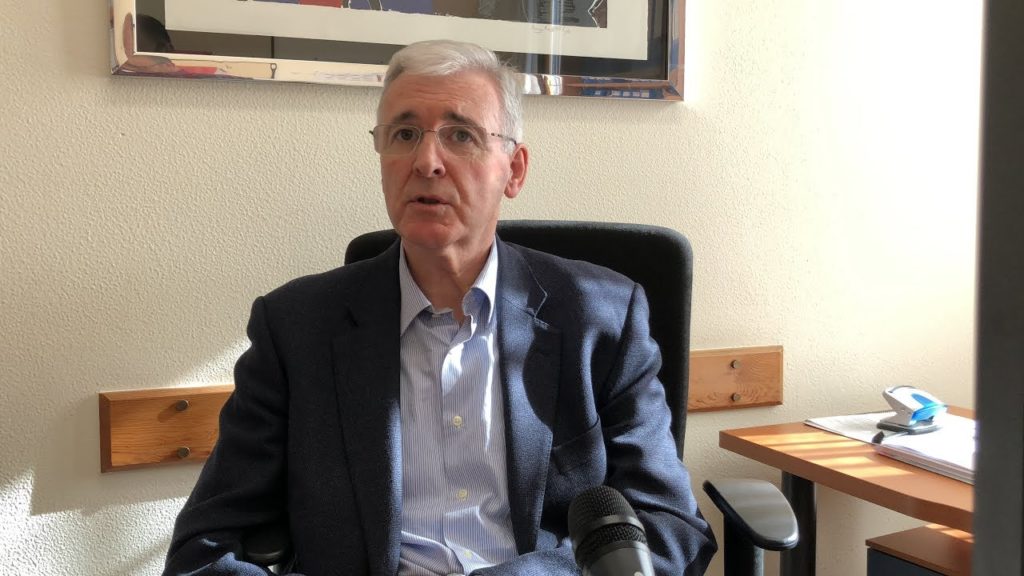









In a new interview for Sustainability 5G, we talk to José María Ziarrusta Abásolo, manager-economist of the Bilbao diocese since 2008. Passionate about teamwork, he has surrounded himself with a large group of professionals and volunteers from all walks of life and together they have launched programs which they are pioneers. They have recently taken first place, shared with the Diocese of Burgos, in a ranking on transparency of dioceses.
Why is the diocese of Bilbao, together with the diocese of Burgos, the most transparent of all?
Transparency has been and continues to be one of the priority projects included in our strategic plan and we have dedicated a lot of effort to it, involving different diocesan areas. Transparency seems to us to be fundamental in an institution such as the Church, which is sustained by the commitment of the faithful.
Transparency seems to us to be fundamental in an institution such as the Church.
José María ZiarrustaManager of the Diocese of Bilbao
What do the best performing parishes do financially?
I am going to point out some key points that a parish priest, who is a reference for good practices, told me:
Teamwork and good collaborators.
Systematic work that is reviewed and improved.
Eyes and ears attentive to what the faithful ask and to what others do better than we do.
Accessibility, face-to-face and also via internet or networks.
Know the parishioners and identify them in different groups: catechesis, couples, youth, seniors, etc.
Communication, both spiritual and economic issues and others that have to do with the parish. To have channels of communication for different groups.
Transparency.
Who are the most generous of the faithful?
Those who know the most about the life and needs of the parishes, that is why communication and transparency are fundamental since they facilitate the commitment of the faithful. It is difficult for a person to commit himself if he does not know what he can contribute and the value of his contribution, whether in time, talent or money.
What worries a bursar?
We are concerned about having good information, planning, learning, developing management tools, engaging people who can collaborate, to take care of obtaining resources and managing them in an adequate way, at the service of the pastoral activity of the Church. The economy is an instrument of the pastoral task.
What does a bursar dream of?
With many things, but to put one that has to do with our economic vision, it would be self-financing, that is, that we can be a Church supported exclusively by the faithful, although any other help is welcome, but without being dependent on them.
A book?
The most widely read book in the world: the Bible.
How have you reinvented yourselves this year to serve the faithful?
This year of pandemic has been a time of accelerated learning for which we have had some technological bases that have helped us. Some of the keys are:
Communication and transparency to involve people.
Assistance in the use of digital technologies.
Document digitalization and computer applications to work on-line.
Contacts and databases for communication with loyal customers.
Use of media, social networks, streaming broadcasts.
Meetings, online training and teleworking.
In general, adapting to the new situation from all parishes and diocesan institutions, without losing personal contact with those most in need.
Why is it so hard for us to adapt to change?
Because changes create insecurity, but they are necessary to move forward. Many times we change because we are forced by the situations we live in, but it is better to anticipate events so that we will be prepared to respond to new needs that arise.
It is difficult for us to adapt to changes because they create insecurity, but they are necessary to move forward.
José María ZiarrustaManager of the Diocese of Bilbao
How does a treasurer evangelize, always among the material?
Like everyone else, sharing your faith, from your daily practice. The material or the economy is not the important thing, but it is a necessary means that is at the service of evangelization. The way you obtain economic resources and the way you manage them is also a way of living your faith.
Does God need money to build the Kingdom?
God surely does not need it, but for people, today it is necessary to have economic resources to develop the pastoral and evangelizing task and not only with money, but with our time and our knowledge. It is an exercise of co-responsibility.
What have you enjoyed the most during these months?
There is a phrase that I like "don't waste a good crisis". Crises make us reflect and I think this pandemic has taught us many things. Apart from what we have learned, I liked the involvement and commitment of people in all areas. Many times the irresponsible behavior of a few people hides the good work of the great majority and we have seen that a crisis like the one we are living has activated many people to collaborate to reduce its effects, also collaborating in helping others.












